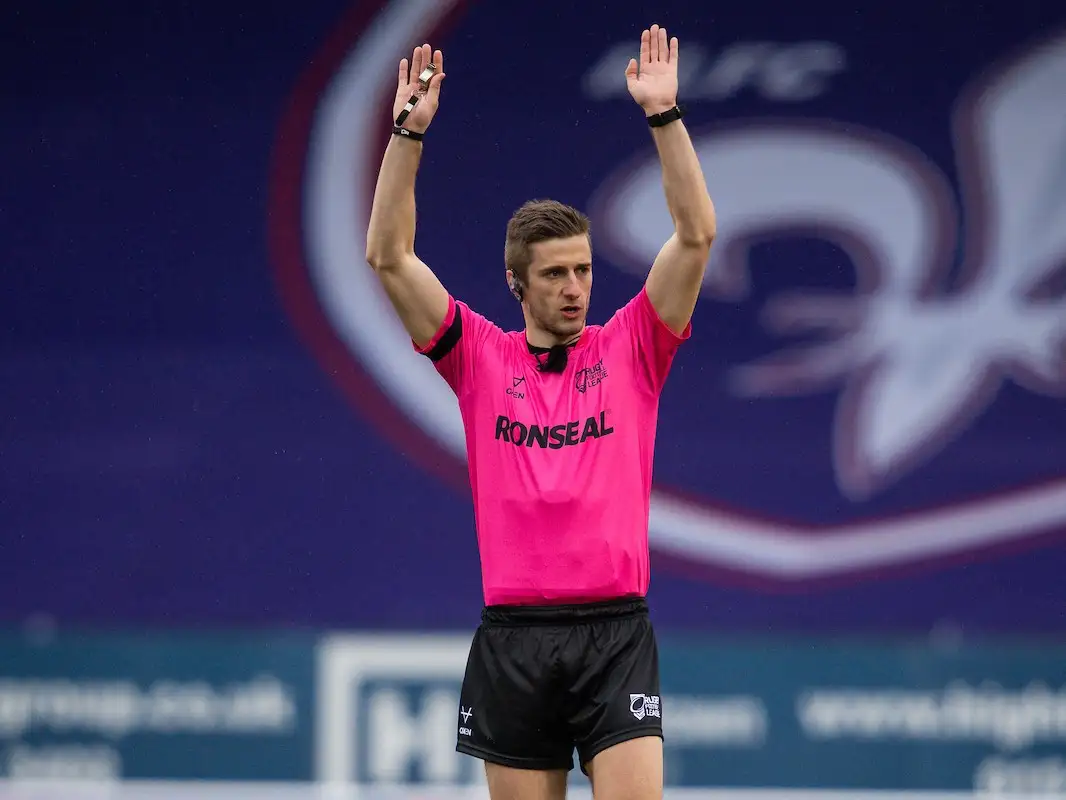RFL to introduce green card to stop games being slowed down

The RFL is set to introduce a green card for referees in a move to combat games being deliberately delayed.
Coaches have called for action over games getting longer as a result of delays caused by what some are deeming disingenuous treatment for injury.
A new approach is now being brought in, following a Laws Committee discussion and approval by the RFL board.
It means that any time a game is stopped due to a player receiving attention, the player must either go off for a concussion assessment or be substituted off – or will have to wait on the sideline for two minutes before returning to play.
The introduction of a shot clock in recent years hasn’t dealt with the issue of delays, particularly around drop outs.
The new ‘green card’ law
Should the referee call time off at the request of either a Physio, Doctor or Head Trainer to allow a player to receive attention, then the player will either leave the field for a concussion assessment, be interchanged, or will leave the field for 2 minutes of elapsed playing time before being allowed to re-enter the field by the Reserve Referee in an onside position from the dug out side of the field.
When the injured player leaves the field for a period of 2 minutes, the referee will show the green card to indicate this process starting.
The referee still holds sole discretion to be able to call time off.
Explaining the changes, Robert Hicks, now RFL Director of Operations and Legal, said: “This rule change only applies when the game is being played or where the shot clock isn’t being used.
“And it doesn’t apply if the referee chooses to stop the game because he believes it’s not safe to carry on.”
An expert’s view
Castleford and Dewsbury Head Doctor, Dr Nick Raynor, was one of the first to react and provide insight in to the green card news.
He tweeted: “Coaches have bemoaned people gaming the system, staying down injured, to get their team a breather. It’s usually the defending team (attacking player would be behind play).
“I’ve been (incorrectly) accused of this myself before. So this rule will get rid of any of that.
“However no-one, except medical staff, really know what is going on during that assessment. Just because a player is able to play on doesn’t mean they aren’t injured or weren’t hurt.
Rugby league are implementing a “green card” which removes a player from play for 2 minutes if they need play to be stopped for on-field medical treatment.
Certainly an interesting move, but I don’t think it’s as straight-forward as coaches & fans think.
A thread 🧵 on why… pic.twitter.com/3Qoc9J8B7W
— Nick Raynor (@DrNickRaynor) January 28, 2022
“Where is the actual evidence that this gaming of the system is happening? I think it’s overstated.
“Before, medical staff could stop play & make sure a player was able to carry on, without fear of reprise.
“Now, we have a situation where you may go to a player you thought was badly injured; turns out to be OK, and subsequently cost your team the game – All for doing your job.
“This rule will stop people feigning injury (which I still don’t think happens often); but it will also encouraged injured/concussed players to get back into the line as they don’t want to let their team down.
“Which could be a disaster, especially in case of head injuries.
“Time will tell how things play out. May be a positive move for the game in the end; but I think close monitoring on player injury outcomes is key to ensuring no further harm is coming because of it.”
The RFL say that 60% of coaches were in favour of introducing the two minute rule.
Other changes
Meanwhile, the RFL have also confirmed that the ball steal rule will be changed for 2022.
Players will no longer be able to steal the ball after a team-mate has “dropped off” the tackle.
Scrums will return for this weekend’s Challenge Cup and Championship action.
READ MORE: Love Rugby League predictions: Betfred Championship